‘Imagine the (Un)imaginable’, thus was the motto of the European regional gathering of the 4th World Small-Scale Fisheries Congress convened in Malta from 12 to 14 September 2022. Three intense days of presentations and discussions in search of solutions to the open crisis of artisanal fisheries in Europe. Hosted by the government of Malta and organised by the Too Big To Ignore global research platform led by Ratana Chuenpagdee, the congress attracted some 120 participants mostly on site, but also offered online participation. Researcher turned Parliamentary Secretary, Dr. Alicia Bugeja Said, opened the congress.
The two introductory plenaries of the congress on imagining Blue Justice and Gender Equity set the tone for the three day event. They were both co-chaired by Milena Arias Schreiber of Gothenburg University and Katia Frangoudes of the University of West Britanny. The different panel contributions made it clear that there was still lots to imagine rather than to affirm the human and other rights enshrined in international agreements and national legislation.
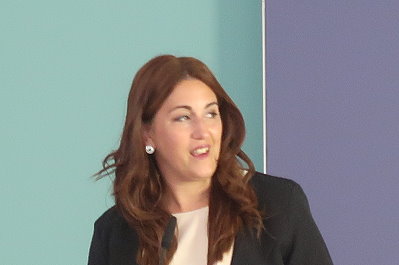
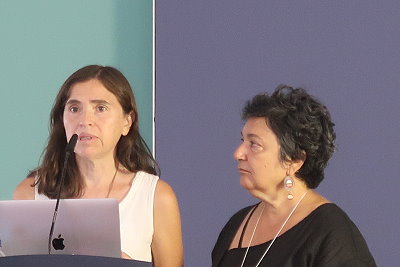
The opening lecture by Svein Jentoft, emeritus professor at the University of Tromso, Norway, delved into deep historical connections of understanding justice and struggles for ensuring justice.
In contrast the statement by Brian O’Riordan, Executive Secretary of the Low Impact Fishers of Europe (LIFE), an apex platform for a sizeable number of national and local fisher organisations, named contemporary injustices suffered by its members through denied justice, denied access to fishing quota and markets. He seemed unconvinced that a fair part of the legislation in place at European and national levels was fit for purpose, but not applied by national governments. He highlighted the need to step up efforts by the fishers and their supporters so as to improve exploitation and earning conditions for low impact fishers so that it would become easier again to recruit young people into the ageing ranks who care about the environment and the future.
Encouragingly for a mostly academic setting, participation from practising small-scale fishers from different countries in Europe was substantial, quite a few from Scotland, Wales and other parts of the UK. They gave full backing to the presentation of LIFE and did not shy away to voice their concerns throughout the congress.
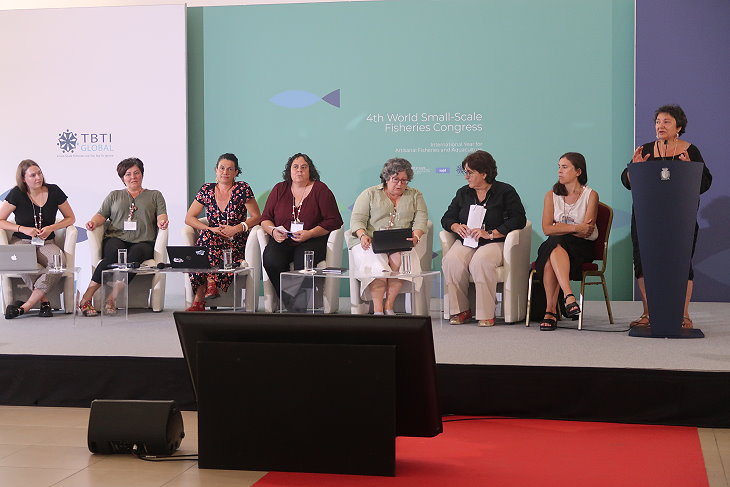
The gender panel’s accounts brought to the surface that there was also room for improvement particularly in the governing approaches of the fishers thought. Right into the ranks of small-scale fisheries organisations gender equity was still a distant goal rather than the normality, even though several women fishers spoke unequivocally about their leadership capacities supported also be men. It was particularly refreshing to listen to these accounts of individual and collective successes, no sign of self-pity but rather seizing opportunities with both hands and overcoming obstacles in their stride. Then it was time to work in smaller sessions.
One of the parallel break-out sessions in the afternoon was organised jointly by Seas at Risk and Mundus maris. In the International Year of Artisanal Fisheries and Aquaculture (IYAFA2022), we invited participants of all backgrounds to this moderated workshop session to explore how we can together imagine futures of European artisanal fisheries in the context of rebuilding the ecosystems for and with coastal fishers to make a good living. That should preferably at least in part replace unsustainable industrial operations based on fossil fuels and subsidies by low impact artisanal fishing. Participants were invited to share their positive experiences and examples in small discussion groups to enable probing conversations that could provide pointers for future developments.
Brian O’Riordan (third from the left in the picture) of the LIFE Platform gave a brief introductory talk recollecting the major concerns and demands of the European artisanal fishers. Cornelia E Nauen of Mundus maris then invited participants to sit together in groups of three to collect their stories of good examples that could inspire learning and encouragement for emulation and upscaling. In such appreciative enquiry mode one person tells a good story, the second keeps a written record of the story and the third helps with clarifying questions to make sure the story is understandable to others.
The session allowed for two rounds and changing roles at the end of the first story. All the while, Hélène Buchholzer and Christine Adams of Seas at Risk ensured that everybody had the materials needed in the room and online respectively. They also kept the time and when the moment had come to share the stories in the plenary, Hélène also collected the key words identifying what where major factors for the success and pinned them up on a flip chart for all to see. Quite a few were named. ‘Passionate people driving the cause’ was perhaps the most significant in the rich collection.
Interesting stories came, among others, from the case of Lyme Bay co-management, an on-going experience in southern England, saving whales and dolphins in Scotland, coastal protection through the house of the fish (casa dei pesci) in the form of marble statues sunk into the water in Tuscany, Italy, fisher organisations in Norway taking active roles in setting national and international policy and practices, co-management in a whelk fishery in the UK, protecting fishing grounds from plastic pollution through the fisher-driven Amorgorama project in Greece, participatory renotching project for lobster in England and Ireland.
José Pascual Fernandez, Universidad de La Laguna, Spain, co-chaired another interesting session with Cristina Pita, University of Aveiro, Portugal, about value chains and markets, which also generated a couple of more good examples. José has also produced a panoramic view of small-scale fisheries in Europe prior to the congress. The report is available on the website of Too Big To Ignore.
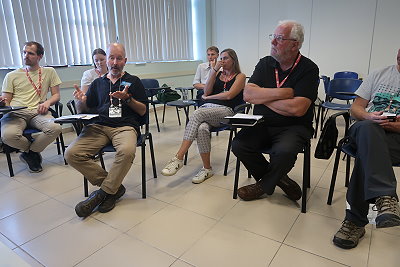
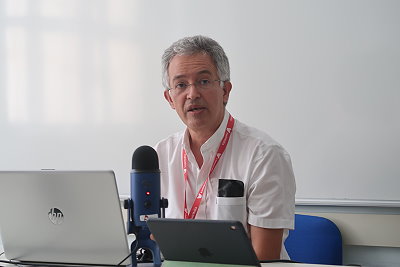
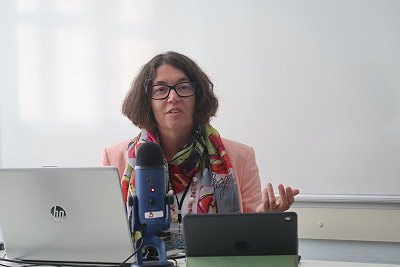
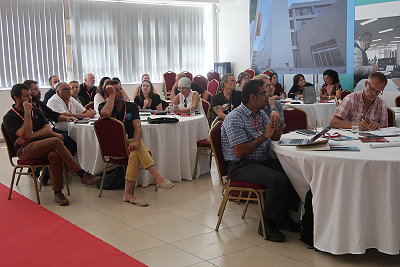
There was no opportunity to go deeper into these stories in a second session, but we will certainly work with these and others to develop a larger portfolio of documented cases that lend themselves as learning grounds for trying transitions to more robust and sustainable fisheries and more experimentation. This looks like a promising way to get out of the gloom and develop the capacities to put alternatives viably into practice.
Several other long plenary sessions and other break out sessions followed. So much to digest in only three days! The large numbers of presentations were very intense so that despite considerable enthusiasm everybody was quite exhausted at the end of the congress, accompanied by tireless Ratana Chuenpagdee, who had to follow deliberations online because of covid.
What do we take home from these three days spent together in Malta? First of all, that there is a significantly increased research interest in small-scale fisheries compared with even 10 years ago and that the findings throw clarifying lights on the woes and opportunities to support developing viable futures for the people active in the subsector. That helps generate much needed public attention. The fact that small-scale fishers are getting better organised to voice their values and demands is in itself crucial and a very encouraging sign which invites further support.
Two weaknesses need addressing as a matter of priority to make the action of small-scale fishers more impactful. One is taking practical steps to give full recognition to their women folk and open pathways for more shared leadership as it will bring strong ideas and renewed impetus to the struggle. The other one is to face the clear necessity for spearheading resource recovery (see the 2016 study on the poor state of 396 stocks of resources in European waters). Could the opposition to collaboration with nature conservation groups and movements be overcome as many goals are shared? Being at the forefront of restoring marine and coastal ecosystems will revert the resource decline and make the profession attractive again for young people as can be seen in places, such as Amorgo (Greece), where it is already the case.
In this context, engaging in dialogue with bottom trawler people, especially in marine protected areas or coastal exclusion zones to stop their damaging practices and revert to low impact fishing methods might help transitions as trawling is becoming less acceptable in societies concerned with their futures in the face of resource overuse, climate change and social injustice. And, high fuel prices drastically reduce the economic viability of trawling, even when propped up with further harmful subsidies. In short, a lot of rethinking and practical change are warranted, by governments, by the economic actors and by other groups intent on turning the multiple crises into the engine for positive change.
The plenary sitting was around round tables throughout the congress. That would have allowed for more small-group dialogues on selected topics, but the format remained largely presentational with in-depth questioning after Q&A segments left to brief social breaks. This certainly allowed for more structured presentations, but did not fully exploit the learning potential of the congress through more in-depth discussions. Still, it was an experience not to be missed. More information on the TBTI website.
Text and all photos by CE Nauen.
Small-Scale Fisheries Academy
- Make Fishing Fair in the EU, 25 March 2025
- Human – Biodiversity Relationships Across Scales
- World Fisheries Day, 21 November 2024, celebrated in Nigeria
- Mundus maris participated in the 2024 World Fisheries Day organized by Canoe and Fishing Gear Association of Ghana (CaFGOAG).
- Mundus maris contribution to the UNOC3 public consultation
- Small-Scale Fisheries Summit in Rome, 5-7 July 2024
- Regional Symposium on European Small-Scale Fisheries, Larnaca, Cyprus, 1-3 July 2024
- Baltic Fisheries Emergency Meeting, Brussels, 26 June 2024
- Ambivalent role of Market and Technology in the Transitions from Vulnerability to Viability: Nexus in Senegal SSF
- Shell fisheries as stewardship for mangroves
- African edition of 4WSFC in Cape Town, 21 to 23 November 2022
- World Fisheries Day, 21 November 2023
- Webinar: Nigeria’s Fisheries challenges and opportunities
- Presenting the FishBase app at the Symposium in Tervuren
- MARE Conference on Blue Fear – Mundus maris reflects
- The Transition From Vulnerability to Viability Through Illuminating Hidden Harvests, 26 May 2023
- EGU sessions focused on geoethics and joint learning, 23-28 April 2023
- Solidarity with artisanal fishers in Senegal and Mauritania
- The legal instruments for the development of sustainable small-scale fisheries governance in Nigeria, 31 March 2023
- Tools for Gender Analysis: Understanding Vulnerability and Empowerment, 17 February 2023
- Community resilience: A framework for non-traditional field research, 27 January 2023
- Sustainability at scale – V2V November webinar
- European edition of 4WSFC in Malta, 12-14 September 2022
- Mundus maris contributes to SSF Summit in Rome
- Women fish traders in Yoff and Hann, Senegal, victims or shapers of their destiny?
- The Academy continues its work in Yoff
- Illuminating the Hidden Harvest – a snapshot
- Virtual launch event FAO: International Year of Artisanal Fisheries and Aquaculture
- The Small-Scale Fisheries Academy as a source of operational support to PA Guidelines
- World Fisheries Congress, Adelaide, 20-24 September
- Mundus maris supports the fight of Paolo, the fisher, in Tuscany, Italy
- Catching-up – SSF Academy Yoff, 27 Febr. 2021
- Strengthening capacities of the actors for sustainable small-scale fisheries
- Testing training methods during the pilot phase of the SSF Academy in Senegal
- A premiere – launch of a Small-Scale Fisheries Academy in Senegal
